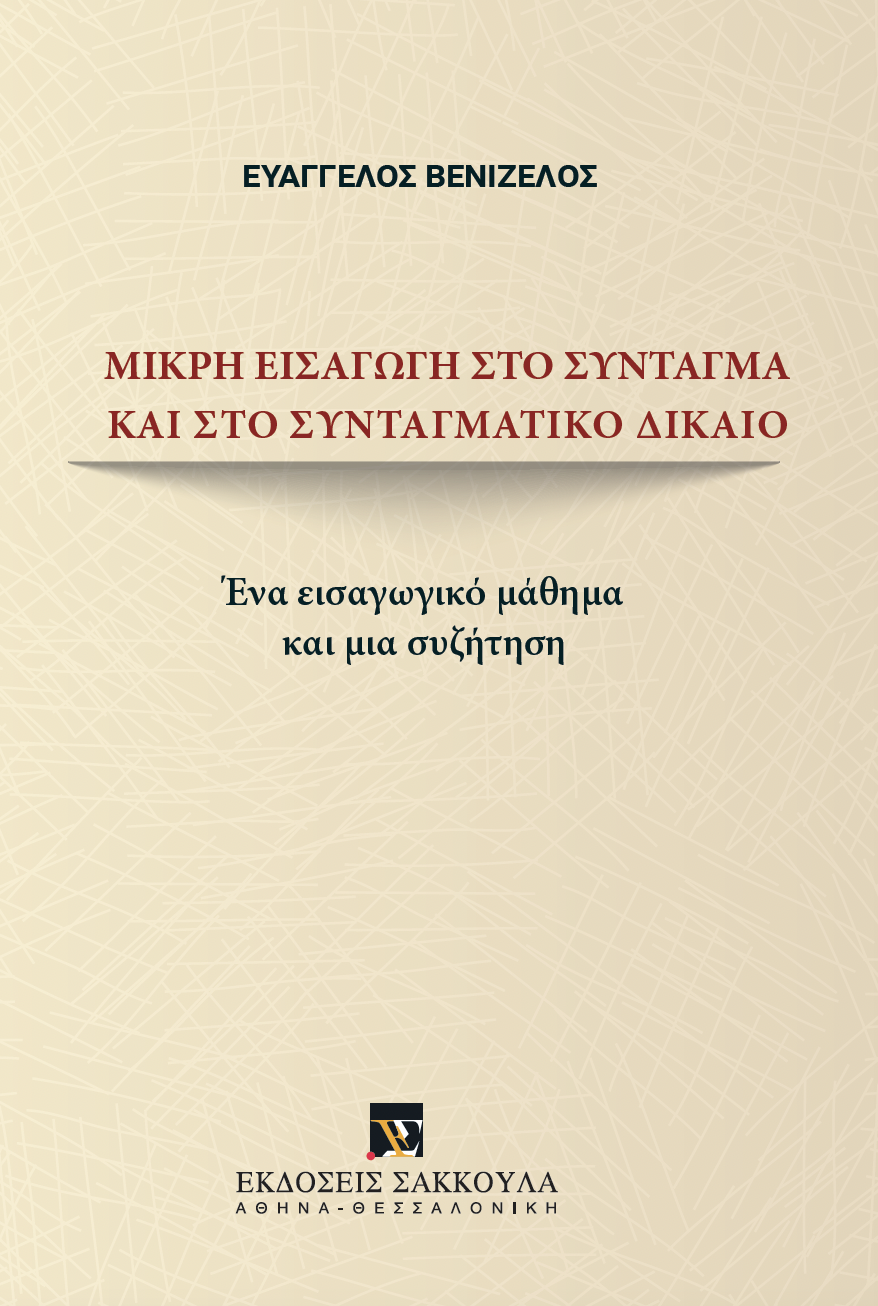Press Release
About Evangelos Venizelos’s, former deputy Prime Minister and Minister of Finance, former Minister of Foreign Affairs book Ekdoches Polemou 2009-2022 (Versions of War 2009-2022 ), published by PATAKIS, July 2022
The EU’s reaction to the pandemic’s financial impact and to the impact of the energy crisis and the wave of inflation today owes a lot to the 2010 – 2019 economic crisis that broke out in four mainly countries members of the Eurozone, but had the greatest intensity and duration in Greece.
The Greek economic crisis experience that covered almost the entire previous decade, functioned as a laboratory within which new institutions, new mechanisms, new practices regarding the Eurozone’s economic governance were formed. Greece paid an enormous price – political, social, economic. Europe displayed its solidarity to Greece, but very often its severity, too, as it was reacting in an embarrassed and contradictory manner, resulting in being sometimes insightful and at other times short-sighted. Overall, though, the Greek economic crisis management was a success and, above all, a laboratory, within which the EU sharpened its ability to react vis-à-vis crises.
This period of the Greek economic crisis is recounted in a new book by Evangelos Venizelos, who was deputy Prime Minister and Minister of Finance during the crisis’s toughest and darkest phase (2011-2012), as well as the central figure of the Greek public debt’s haircut and restructuring, which to date safeguards the country’s safe fiscal course. Thereafter, in 2012, Evangelos Venizelos took over PASOK’s leadership, participated as governing partner – deputy Prime Minister and Minister of Foreign Affairs in the Samaras -Venizelos government (New Democracy – PASOK coalition) and, after SYRIZA won the elections, was a key figure of the opposition in the Geek Parliament.
Evangelos Venizelos sets out, in the form of a lengthy conversation with the well-known Greek journalist, George Kouvaras, the events and circumstances that make up the Greek economic crisis. He refers to this whole period’s forefront and backstage, to critical moments, to the negotiations with the other European governments, the European institutions, the IMF, the representatives of the international banking sector and the market, to the social reactions, to the European democracy’s resilience.
The Eurogroup’s activity, Germany’s leading part, the IMF’s participation at the heart of the Eurozone, the ECB’s role, the way in which new economic governance institutions, such as ESM and the Treaty on Stability, Coordination and Governance and new quantitative easing mechanisms, such as OMT and, thereafter, APP and PEPP, were formed are the subject of this book. Evangelos Venizelos delivers a statement in his capacity as politician, as well as his interpretation as a Law School professor, with large experience in the practice of financial and foreign policy and a long-standing participation in European bodies.
All critical issues, such as the risk of Grexit, the referendum that was proclaimed in 2011 by George Papandreou, but not held in order to take place, after all, in 2015 by the Tsipras government, the meeting in Cannes, the set-up of the Greek public debt’s haircut, which is the largest worldwide, make up the book’s chapters.
The key figures make an interesting gallery set out in the book: Angela Merkel, Nicolas Sarkozy, François Hollande, Wolfgang Schäuble, Jean-Claude Juncker, Mario Draghi, Christine Lagarde, José Barroso, Olli Rehn, Jean-Claude Trichet, Charles Dallara and many other important figures of the European and international stage are this period’s leading actors, alongside the Greek figures, of course: George Papandreou, Loukas Papademos, Antonis Samaras, Alexis Tsipras, to mention only the period’s Prime Ministers.
Evangelos Venizelos places the Greek economic crisis in the series of crises. He associates it with the pandemic crisis, the crisis of the Russian military attack and the war in Ukraine, the energy crisis, the new global landscape and the large spectrum of threats and risks that contains.
“Ekdoches Polemou” (Versions of War ) is an exercise of self-awareness for Greece, as well as for Europe. A book referring to the recent past and present, but mostly talking about the future.















